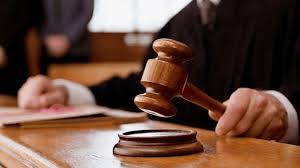Constitutional law and principles of constitutional democracy
Constitutional law is one of the main branches of law that regulates the foundations of the state system, human and civil rights and freedoms, organization and activities of public authorities and local self-government. It establishes the basic principles of the functioning of the state and society on the basis of democracy, the rule of law and the separation of powers.
Main sources of constitutional law
The Constitution of Ukraine
The Constitution of Ukraine is the main source of constitutional law. It was adopted by the Verkhovna Rada of Ukraine on June 28, 1996, and enshrines the basic principles of a democratic, legal and social state. The Constitution is the act of supreme legal force on the basis of which all other laws and regulations are adopted.
Laws and regulations
Sources of constitutional law also include:
Laws of Ukraine.
Decisions of the Constitutional Court of Ukraine.
International treaties ratified by Ukraine.
Subordinate legal acts (presidential decrees, resolutions of the Cabinet of Ministers, etc.).
Basic principles of constitutional democracy
The rule of law
The rule of law means that all subjects of legal relations, including public authorities, must act in accordance with the law. The law has the highest legal force and is binding.
Separation of powers
The principle of the separation of powers provides for the division of state power into three branches: legislative, executive and judicial. This ensures mutual control and restraint between the branches of government, preventing the usurpation of power.
The legislature is the Verkhovna Rada of Ukraine.
Executive power - the Cabinet of Ministers of Ukraine and other executive bodies.
Judiciary - courts of general jurisdiction and the Constitutional Court of Ukraine.
Democracy
Democracy involves the participation of citizens in decision-making related to public life. This is achieved through elections, referendums, public discussions and other forms of direct and representative democracy.
Human and civil rights and freedoms
The Constitution of Ukraine enshrines a wide range of human and civil rights and freedoms, dividing them into:
Personal rights and freedoms (right to life, freedom of speech, freedom of movement, etc.)
Political rights and freedoms (the right to participate in the management of public affairs, the right to form political parties, etc.)
Economic, social and cultural rights (right to work, right to education, right to social protection, etc.)
The principle of the rule of law
A state governed by the rule of law is a state in which conditions are created for the realization of human and civil rights and freedoms, the rule of law is ensured, and effective control over the activities of state bodies is exercised.
Organization of state power
Verkhovna Rada of Ukraine
The Verkhovna Rada of Ukraine is the sole legislative body in Ukraine. It adopts laws, approves the state budget, and oversees the activities of the executive branch.
The President of Ukraine
The President of Ukraine is the head of state, the guarantor of state sovereignty, territorial integrity, and observance of the Constitution. The President is in charge of foreign policy and is the Supreme Commander-in-Chief of the Armed Forces of Ukraine.
The Cabinet of Ministers of Ukraine
The Cabinet of Ministers of Ukraine ensures the implementation of laws, manages the social and economic development of the country, and implements state policy in all spheres of public life. It consists of the Prime Minister, deputy prime ministers and ministers who head the relevant ministries. You may also be interested in the following articles: advice of a lawyer, legal advice, analysis of documents, legal analysis of the situation, written advice, verification of documents by a lawyer, lawyers documents, online legal advice, online lawyer, legal opinion, legal opinion of a lawyer, lawyer online.
The judicial system
The judicial system of Ukraine consists of courts of general jurisdiction and specialized courts. Courts of general jurisdiction hear civil, criminal, administrative and commercial cases. Specialized courts (e.g., the Constitutional Court of Ukraine) deal exclusively with constitutional control issues.
The Constitutional Court of Ukraine exercises constitutional control, in particular, checks the compliance of laws and other legal acts with the Constitution of Ukraine.
The Supreme Court of Ukraine is the highest judicial body in the system of courts of general jurisdiction.
Local self-government
Local self-government in Ukraine is exercised by territorial communities through local self-government bodies, such as councils and executive committees. They have the right to independently resolve issues of local importance, ensure the proper functioning of public utilities, and implement social and economic development programs.
Conclusion.
Constitutional law is the basis of Ukraine's legal system and defines the principles of organization and functioning of state power, human and civil rights and freedoms. The principles of constitutional democracy, such as the rule of law, separation of powers, democratic decision-making procedures, the rule of law and respect for human rights and freedoms, ensure stability and development of society, create conditions for the effective functioning of the state and protection of citizens' interests.

































